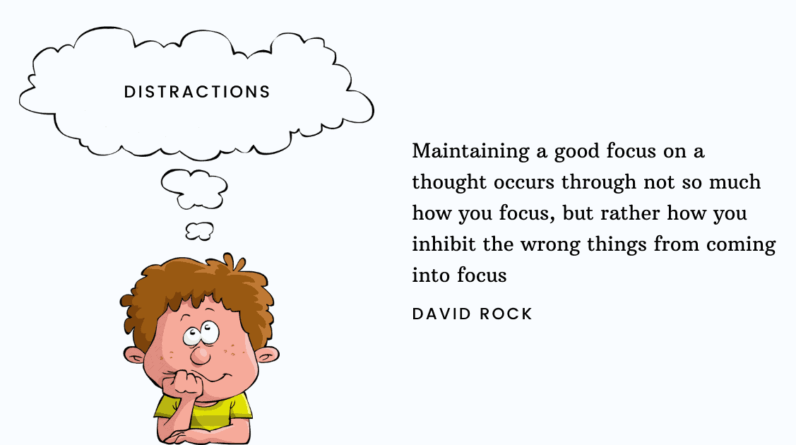In the world of golf, having a positive mindset can make all the difference between a winning shot and a frustrating game. But what exactly is the importance of positive self-talk in golf? Well, it turns out that the way you speak to yourself on the golf course can greatly impact your performance. By using encouraging and empowering words, you not only boost your self-confidence but also improve your focus and overall mental game. So, whether you’re a seasoned pro or just starting out, harnessing the power of positive self-talk can elevate your golfing experience to new heights.

The Mental Game of Golf
Golf is a sport that requires not only physical skill and technique, but also a strong mental game. Every golfer knows that the mind plays a crucial role in their performance on the course. One aspect of the mental game that is often overlooked but extremely important is positive self-talk. Your inner dialogue, the thoughts and words you say to yourself, can greatly impact your golf game. In this article, we will explore the importance of positive self-talk, how it affects your performance, and strategies to develop a strong mental approach in golf.
Boosting Confidence
Confidence is key in golf. When you step up to the tee, do you believe in yourself and your abilities? Building self-belief is an essential part of your mental game. Positive self-talk can boost your confidence by reminding you of your skills, past successes, and the progress you have made. By reinforcing positive thoughts and beliefs, you can build a strong foundation of self-confidence that will carry you through every shot.
However, doubts and negativity can often creep into your mind, especially when faced with challenging shots or pressure situations. Overcoming these doubts is crucial in maintaining your confidence. By acknowledging and challenging negative thoughts, you can replace them with positive and realistic ones. This process will help you develop a more optimistic mindset and increase your overall confidence on the course.
Enhancing focus and concentration is another important aspect of building confidence. By using positive self-talk, you can shift your attention away from distractions and maintain a laser-like focus on the task at hand. By staying present and fully engaged in each shot, you can maximize your chances of success and boost your confidence even further.
Managing Pressure
Pressure comes hand in hand with competitive golf. Whether it’s a crucial putt to win a match or a tee shot in a tournament, golfers often find themselves in high-pressure situations. The ability to stay calm under pressure can make all the difference in your performance. Positive self-talk can be a powerful tool in managing pressure.
Controlling nerves and anxiety is one way in which positive self-talk can help manage pressure. By reframing nervous energy as excitement and using positive affirmations, you can shift your mindset and channel that energy into a focused and confident performance. Maintaining composure in challenging situations requires a strong mental approach, and positive self-talk can provide that.
In addition to controlling nerves and anxiety, maintaining composure is crucial when faced with challenging situations on the course. Positive self-talk can help you stay calm, composed, and focused when things don’t go according to plan. By reminding yourself to stay patient, adapt to changing conditions, and trust your abilities, you can navigate through difficult situations with a clear and focused mind.
Improving Resilience
Resilience is the ability to bounce back from setbacks and keep going even in the face of adversity. In golf, resilience is often tested by a bad shot, a missed putt, or a disappointing round. Positive self-talk can play a vital role in developing and improving resilience.
Bouncing back from setbacks requires a strong mental game. By using positive self-talk, you can reframe setbacks as opportunities for growth and learning. Instead of dwelling on a bad shot, focus on what you can do differently next time. By maintaining a positive and growth-oriented mindset, you can quickly recover from setbacks and stay motivated to continue improving.
Adapting to changing course conditions is another aspect of resilience in golf. Weather, wind, and course conditions can vary greatly, and being able to adapt and adjust your strategy is crucial. Positive self-talk can help you stay flexible and open-minded, allowing you to make the necessary changes to succeed. By reminding yourself that you have the skills and ability to handle any situation, you can approach each shot with confidence and resilience.
Maintaining motivation and persistence is essential for long-term success in golf. Positive self-talk can help keep your motivation levels high and remind you why you love the game. By focusing on the positive aspects of your golf journey and setting realistic goals, you can stay motivated and persistent even when faced with challenges. Developing a resilient mindset through positive self-talk will ultimately lead to improved performance on the course.

Cultivating a Positive Mindset
A positive mindset is not only beneficial for your golf game, but also for your overall well-being. Positive self-talk can help you cultivate a positive mindset that will not only improve your golf performance but also enhance your mental well-being.
Promoting optimism and positivity is one of the main benefits of positive self-talk. By regularly reminding yourself of your strengths, successes, and the joys of the game, you can develop an optimistic outlook. This positive mindset can help you stay motivated, focused, and resilient in the face of challenges.
Reducing stress and tension is another important aspect of cultivating a positive mindset. Negative self-talk can contribute to increased stress levels and tension on the golf course. By replacing negative thoughts with positive ones, you can alleviate unnecessary stress and tension. This will allow you to approach each shot with a calm and clear mind, increasing your chances of success.
Boosting mental well-being is perhaps the most important aspect of cultivating a positive mindset. Golf is meant to be enjoyed, and positive self-talk can help you maintain a healthy and balanced perspective on the game. By prioritizing your mental well-being and using positive self-talk as a tool for self-care, you can ensure that golf remains a source of joy and fulfillment in your life.
Enhancing Visualization and Imagery Skills
Visualization and imagery skills are powerful tools in a golfer’s arsenal. By creating positive mental images and vividly imagining successful shots, you can improve your shot selection and execution. Positive self-talk can enhance these visualization and imagery skills, taking your golf game to the next level.
Creating positive mental images involves using positive self-talk to frame each shot in your mind before you hit it. By visualizing the desired outcome, feeling the swing, and focusing on the target, you can improve your shot selection and increase your chances of success. Positive self-talk can reinforce these mental images, helping you stay focused and confident as you execute the shot.
Improving shot selection and execution is directly linked to effective visualization and imagery skills. By using positive self-talk, you can guide your decision-making process and choose the optimal shot for each situation. By visualizing successful shots and positive outcomes, you can enhance your technique and execution on the course.
Mental rehearsal for success is another benefit of positive self-talk in golf. By mentally rehearsing your shots, you can build confidence, familiarize yourself with the desired outcome, and develop a sense of anticipation. Positive self-talk can play a crucial role in this mental rehearsal process, reinforcing the belief in your abilities and simulating success in your mind.

Developing Effective Self-Talk Strategies
Developing effective self-talk strategies is key to harnessing the power of positive self-talk in golf. By identifying and challenging negative thoughts, replacing them with positive ones, and using affirmations and trigger words, you can take control of your inner dialogue and optimize your mental game.
Identifying and challenging negative thoughts is the first step in developing effective self-talk strategies. Pay attention to the thoughts that pop into your head when faced with a challenging shot or a disappointing outcome. Challenge these negative thoughts by asking yourself if they are realistic or helpful. By challenging and reframing these thoughts, you can replace them with more positive and realistic alternatives.
Replacing negative thoughts with positive thoughts is a crucial aspect of effective self-talk. Once you have identified and challenged negative thoughts, consciously replace them with positive and helpful ones. Remind yourself of your skills, past successes, and the progress you have made. By cultivating a positive and supportive inner dialogue, you can boost your confidence and overall performance on the course.
Using affirmations and trigger words is another effective self-talk strategy in golf. Affirmations are positive statements that you can repeat to yourself to reinforce positive beliefs and attitudes. For example, “I am a skilled and confident golfer” or “I am fully capable of handling any challenge.” Trigger words are short, powerful phrases that you can use to refocus and regroup in moments of pressure or distraction. By using affirmations and trigger words, you can anchor positive thoughts and emotions, boost your confidence, and perform at your best.
Building Mental Toughness
Mental toughness is the ability to stay focused, resilient, and determined in the face of challenges and adversity. Building mental toughness is crucial for success in golf, and positive self-talk can help you develop this important attribute.
Building resilience and grit is a key component of mental toughness. By using positive self-talk to reframe setbacks as learning opportunities, you can bounce back quickly and keep moving forward. Embracing challenges and persevering through difficult situations can strengthen your mental toughness on and off the golf course.
Maintaining focus in the face of distractions is another aspect of mental toughness. Golf is full of distractions, both internal and external. Positive self-talk can help you stay focused on your game plan, block out distractions, and maintain your concentration throughout your round. By reminding yourself to stay present and fully engaged in each shot, you can enhance your mental toughness and improve your performance.
Developing a never give up attitude is the final piece of the mental toughness puzzle. Golf is a game of ups and downs, and being able to navigate through the lows without giving up is crucial. Positive self-talk can reinforce your belief in yourself and your ability to overcome obstacles. By adopting a never give up attitude and using positive self-talk as a tool for motivation, you can develop the mental toughness needed to succeed in golf and in life.

Overcoming Performance Anxiety
Performance anxiety is a common challenge faced by many golfers. The fear of failure, the pressure to perform, and the expectations placed on oneself can all contribute to performance anxiety. Positive self-talk can be a valuable tool in overcoming performance anxiety and allowing you to perform at your best.
Addressing fear of failure is the first step in overcoming performance anxiety. Positive self-talk can help you reframe failure as an opportunity for growth and learning. Instead of fearing failure, embrace it as a necessary part of the learning process. By reminding yourself that failure does not define you as a golfer, you can reduce anxiety and perform with more freedom and confidence.
Managing performance expectations is another key aspect of overcoming performance anxiety. Positive self-talk can help you set realistic and achievable goals for each round or competition. By focusing on the process rather than the outcome, you can alleviate unnecessary pressure and allow yourself to perform at your best. Remind yourself that you have prepared well, trust your abilities, and let go of the need for perfection.
Embracing pressure and thriving under it is the final step in overcoming performance anxiety. Positive self-talk can help you reframe pressure as a privilege and an opportunity to showcase your skills. By embracing pressure and using positive self-talk to remind yourself of your abilities and past successes, you can perform with confidence and enjoyment. Trust in your preparation, focus on the present moment, and let your positive self-talk guide you to success.
Utilizing Self-Talk as a Learning Tool
Self-talk can also be used as a powerful tool for learning and improvement in golf. By analyzing and learning from mistakes, developing a growth mindset, and staying positive during the learning process, you can accelerate your progress and reach your potential.
Analyzing and learning from mistakes is essential for growth in golf. Positive self-talk can help you approach mistakes with a constructive mindset. Instead of dwelling on the negative, use positive self-talk to identify areas for improvement and create a plan for growth. By reframing mistakes as opportunities for learning, you can develop a growth mindset and continually improve your game.
Developing a growth mindset is another important aspect of utilizing self-talk as a learning tool. Positive self-talk can help you cultivate a mindset that embraces challenges, values effort, and sees setbacks as temporary. By reminding yourself that abilities can be developed with dedication and hard work, you can approach your golf journey with enthusiasm and resilience. Embrace the learning process, stay open to feedback, and use positive self-talk to reinforce your growth mindset.
Staying positive during the learning process is crucial for long-term improvement in golf. Positive self-talk can help you maintain a positive outlook even when faced with challenges and setbacks. By celebrating small victories, recognizing progress, and focusing on the joy of the game, you can stay motivated and engaged in your golf journey. Let positive self-talk be your guiding voice, cheering you on during the highs and supporting you during the lows.







